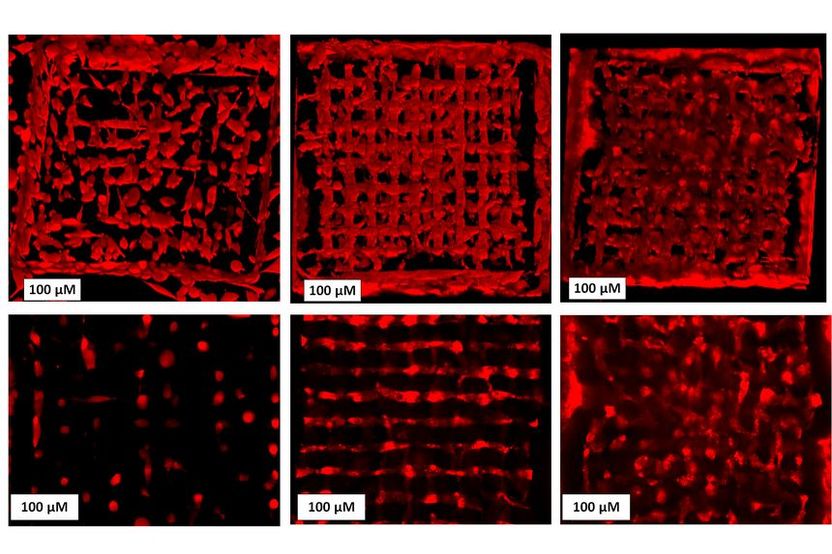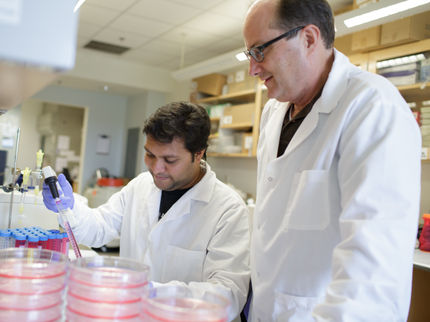Modeling NAFLD with human pluripotent stem cell derived immature hepatocyte like cells
Researchers from the Institute for Stem Cell Research and regenerative medicine at the University Clinic of Düsseldorf have established an in vitro model system for investigating nonalcoholic fatty liver disease (NAFLD).
Nonalcoholic fatty liver disease (NAFLD), also called steatosis, is a dramatically under-estimated liver disease, with increasing incidences throughout the world. It is frequently associated with obesity and type-2 diabetes. Approximately one third of the general population in Western countries are affected, often without even having symptoms. It is a result of a high caloric diet in combination with a lack of exercise, where the liver starts incorporating fat as lipid droplets. Initially, this is a benign state, which can, however, develop into NASH /steatohepatitis, an inflammatory disease of the liver. Then many patients develop fibrosis, cirrhosis or even liver cancer. However, in many cases patients die of heart failure before they develop severe liver damage.
A major obstacle for NAFLD research was, up to now, that biopsies of patients and healthy individuals were required. The Düsseldorf researchers elegantly solved this problem by reprogramming skin cells into so called induced pluripotent stem cells which they differentiated into hepatocyte like cells. "Although our hepatocyte-like cells are not fully mature, they are already an excellent model system for the analysis of such a complex disease", explains Dr. Nina Graffmann, first author of the study. The researchers recapitulated important steps of the disease in vitro. For example they demonstrated up-regulation of PLIN2, a protein that covers lipid droplets. Mice without PLIN2 do not become obese, even when overfed with a high fat diet. Also the key role of PPARα, a transcription factor involved in controlling glucose and lipid metabolism, was reproduced in the in vitro system. "In our system, we can efficiently induce lipid storage in hepatocyte-like cells and manipulate associated proteins or microRNAs by adding various factors into the culture. Thus, our in vitro model offers the opportunity to analyse drugs which might reduce the stored fat in hepatocytes" says Dr. Graffmann.
The team now expands the model using induced pluripotent stem cells derived from NAFLD patients, hoping to discover differences which might explain the course of the disease. "Using as reference the data and biomarkers obtained from our initial analyses on patient liver biopsies and matching serum samples (1), we hope to better understand the etiology of NAFLD and the development of NASH at the level of the individual, with the ultimate aim of developing targeted therapy options," states Professor James Adjaye, senior author of the current study.
Original publication
Dr. Nina Graffmann, Sarah Ring, Marie-Ann Kawala, Wasco Wruck, Miss Audrey Ncube, Hans-Ingo Trompeter, and Prof. James Adjaye; "Modelling NAFLD with human pluripotent stem cell derived immature hepatocyte like cells reveals activation of PLIN2 and confirms regulatory functions of PPARα"; Stem Cells and Development; 2016
Most read news
Original publication
Dr. Nina Graffmann, Sarah Ring, Marie-Ann Kawala, Wasco Wruck, Miss Audrey Ncube, Hans-Ingo Trompeter, and Prof. James Adjaye; "Modelling NAFLD with human pluripotent stem cell derived immature hepatocyte like cells reveals activation of PLIN2 and confirms regulatory functions of PPARα"; Stem Cells and Development; 2016
Topics
Organizations
Other news from the department science

Get the life science industry in your inbox
By submitting this form you agree that LUMITOS AG will send you the newsletter(s) selected above by email. Your data will not be passed on to third parties. Your data will be stored and processed in accordance with our data protection regulations. LUMITOS may contact you by email for the purpose of advertising or market and opinion surveys. You can revoke your consent at any time without giving reasons to LUMITOS AG, Ernst-Augustin-Str. 2, 12489 Berlin, Germany or by e-mail at revoke@lumitos.com with effect for the future. In addition, each email contains a link to unsubscribe from the corresponding newsletter.
Most read news
More news from our other portals
Last viewed contents

Takara Bio and Eppendorf cooperate - Automation of Takara Bio’s Chemistries on Eppendorf’s Automated Pipetting Systems for Significantly Higher Efficiency
AbbVie Announces New Phase 3b Results in Genotype 1b Chronic Hepatitis C Patients with Compensated Liver Cirrhosis

Tuberculosis Strains Resistant to New Drugs Are Transmitted Between Patients - “We must stay ahead in this constant race between drug development and bacterial resistance...”
Bionic plants

BioVaria Startup Awards go to iRASP Therapeutics and OrganoTherapeutics - New platform for developing therapeutic antibodies against cancer and new approach to the development of drugs for Parkinson’s disease

Bioprinting: Living cells in a 3D printer
Amylon Therapeutics wins Startup Slam Competition at BIO-Europe® Berlin - Startup Slam sponsor Johnson & Johnson Innovation recognise high calibre of diverse European entries






















































